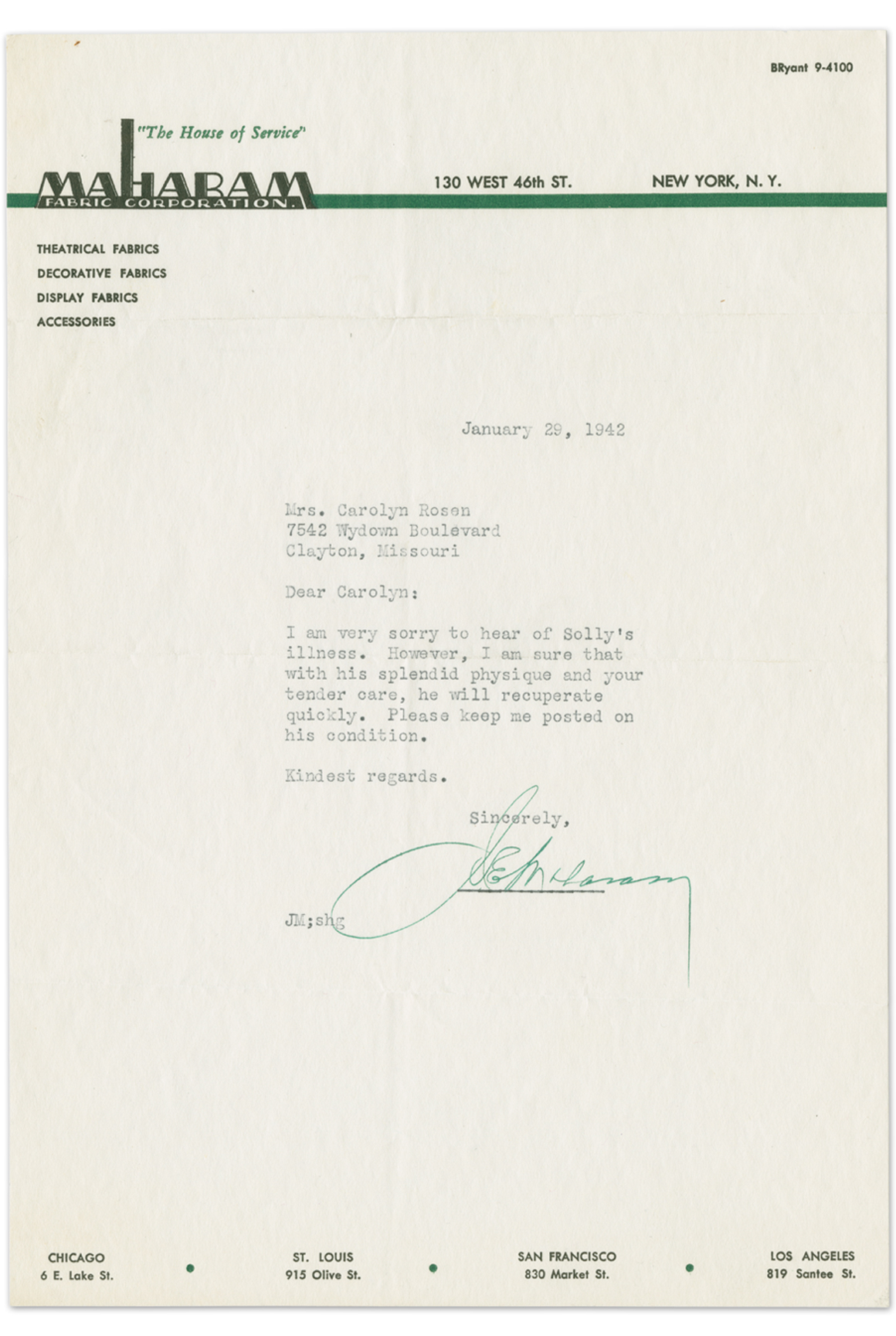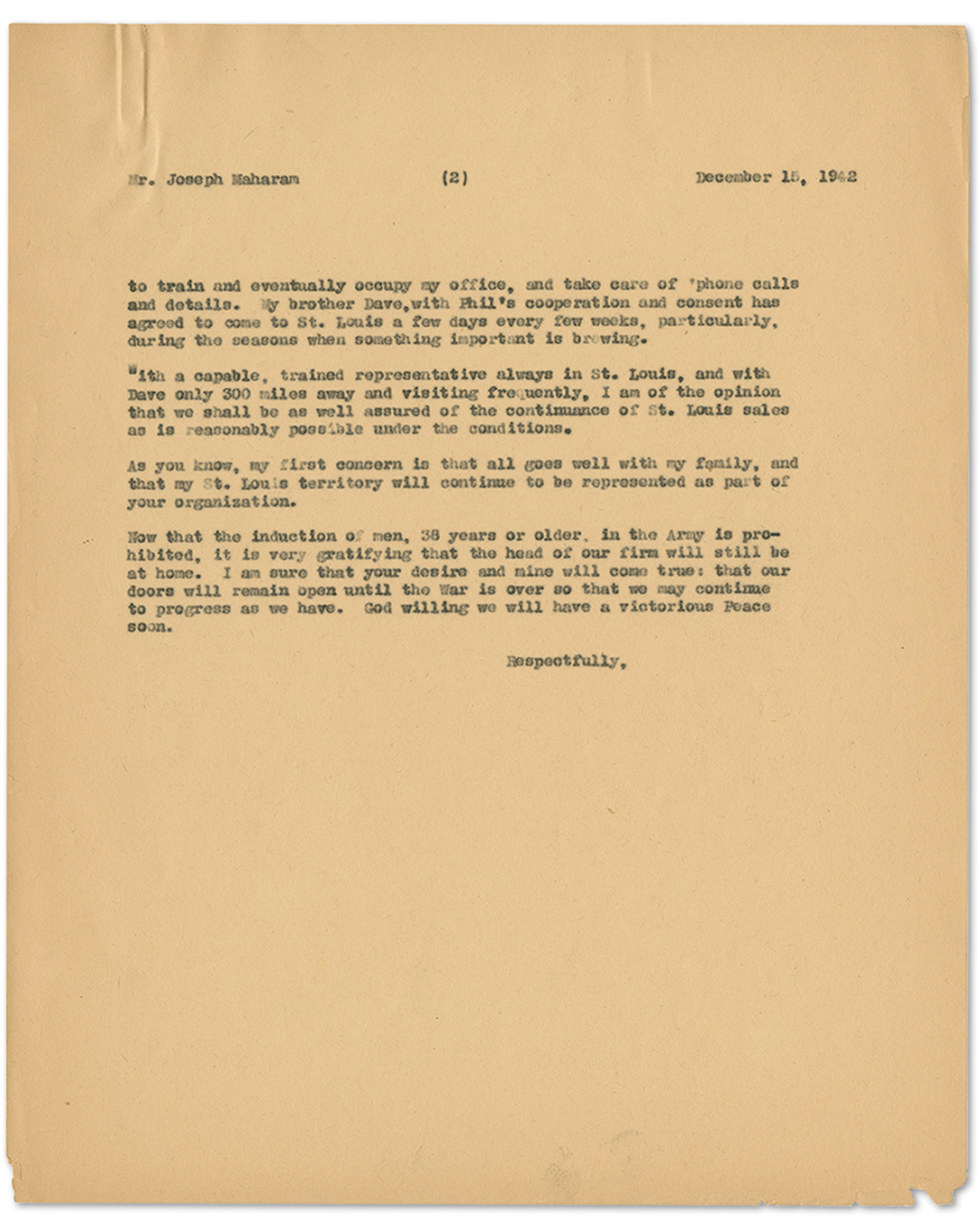
In 1933, as America struggled through the depths of the Great Depression, a young man named Sol Rosen joined Maharam's fledgling Chicago sales force. Maharam was just entering its fourth decade in business and was in the process of expanding from its original location on West 46th Street in New York's theater district to Chicago, St. Louis, and eventually Los Angeles. Under the leadership of Joe, Arthur, Mac, and Sam Maharam, the company morphed from a peddler of fabric remnants into the "style authority for costume and stage decoration."
Though it paid only twelve dollars a week, Sol's first job was worth much more to this exuberant eighteen-year-old, offering a backstage pass to a vivid world of vaudeville and burlesque theater, dance schools, nightclubs, and traveling circuses. It even granted him entrée into the dressing room of Olympic gold medalist and ice-review star Sonja Henie, who demanded a special shade of transparent peach velvet for her toilette, delivered by Sol personally. At the end of his first week, this self-described "virtual dynamo," who ran everywhere rather than waste time walking, came home exhausted and slept fourteen hours straight.
During this era of the postage stamp, Sol Rosen's business correspondence with Joe Maharam, or "J.M.," was comprehensive and stretched from July 1938 until December 1945. It paints a picture of an ambitious young man whose ceaseless desire to improve his station in life mirrored the nation's efforts to rebuild in the wake of economic collapse.
Early on, before he was entrusted with the keys to his boss's Chevrolet, Sol would make his deliveries by hitching a ride on the back of an obliging truck, pocketing his fourteen-cent streetcar fare. While his hopeless scheming occasionally landed him in hot water—in one letter, J.M. accuses him of "doping out a different proposition" "every other Sunday and Thursday"—more often than not, Sol's relentless, resourceful nature made him an invaluable employee—a veritable "Kid Dynamite"—to a company on the move. Charting a young man's course through life's early milestones—a wedding (a "ball and chain festival"), quickly followed by a baby (a real "humdinger"), and voluntary service in the Army Air Forces during World War II (which was hoped to last only a year thanks to "the help of the good old Russian boys")—these recently rediscovered letters, provided by Sol's daughter Joyce Friedman, with their colorful sprinkling of ostrich feathers and gold sequins, are a treasure of the Maharam archives.









